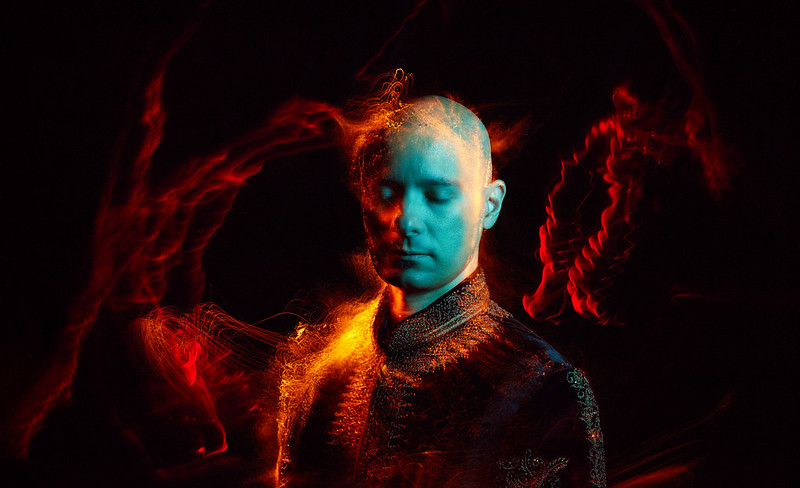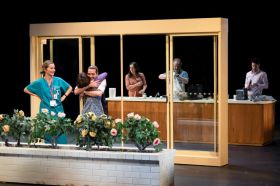In the bowels of Hamer Hall, a rare event of operatic minimalism was presented for one night only: Satyagraha by minimalist stalwart Philip Glass.
For the uninitiated, minimal music is characterised by sound that uses as little as possible, be it notes, melodies or instruments, to create affecting musical works. Composers of minimal music often experiment with repeating musical patterns or ‘cells’, injecting variety into the music at a snail’s pace to allow audiences to home in on precisely how the piece changes.
It’s a sound often described as hypnotic, but it certainly doesn’t hypnotise everyone if the bobbing heads and broken snores around me by the end of this particular concert were anything to go by.
Out of Glass’ well-known Portrait Trilogy, Opera Australia mounted the second work, Satyagraha, which delves into Mahatma Gandhi’s time in South Africa. It was here that Gandhi developed his spiritual ethos of non-violent resistance and honed his practice of it. South Africa was also where Gandhi wrote extensively on the injustice of Indian people being treated like Black Africans, a group he saw as racially beneath Indian people and undeserving of equality, according to recent scholarship.
This information sparked global discussion on whether Gandhi was irredeemably racist or just a product of his time. While centring a story on Gandhi’s time in South Africa wouldn’t have raised eyebrows in 1979, the year of Satyagraha’s premiere, it feels like a programming misstep to mount the work in 2023 when the narrative focus now serves as a reminder of Gandhi’s flaws rather than heroism.
Returning to the work itself, Glass’ minimalist proclivities see him veer away from heavy use of libretto. Instead of something that outlines plot or exposes a character’s inner thoughts, Glass and Constance DeJong created a libretto that throws out quotes derived from the Bhagavad Gita, a Hindu scripture. The result is an opera that’s more of a disjointed sermon with world-class accompaniment than a story.
Read: Performance review: The Poison of Polygamy, La Boite Theatre
But as a concert recital rather than staged production, the narrative was firmly in second place in favour of technical prowess and musical sophistication. In this aspect, Opera Australia and Orchestra Victoria delivered as ever. Conducted by Tahu Matheson, the orchestra showcased precision control that created Glass’ signature droning sound and enabled the audience to pinpoint minuscule changes in the score. Shanul Sharma, performing the role of Gandhi, had a captivating element to his voice – a sense of romantic heroism that followed through to his performance, presenting a princely interpretation of the well-known historical figure.
The most exciting moments involved the Chorus, especially when they imitated the repeated staccato notes of the string section in Act II: Tagore.
For fans of minimal music this was a performance not to miss, and for the undecided it was one of the best quality presentations of the musical style you’ll get in Australia.
Satyagraha
Conductor: Tahu Matheson
Director: Andy Morton
M K Gandhi performed by Shanul Sharma
Hamer Hall, Melbourne
13 May 2023





